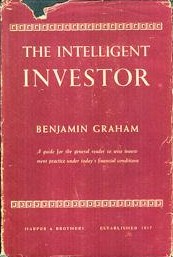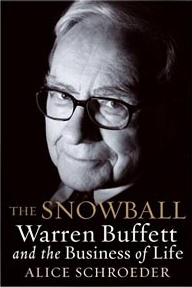Friday, 17 October 2014
Pension Choice: Annuity VS Flexible Drawdown
I've penned a blog post on the Seer Green website that attempts to weigh up the pros and cons of both annuities & pension drawdown schemes (UK).
The article centres on flexible drawdown which has recently become more accessible to retirees since new legislation came into place earlier this year. From next April it will be accessible to all.
The article only intends to highlight the main issues involved, and should not be viewed as advice. Please follow the link below.
http://seer-green.com/blog/2014-10-17-pension-options-annuity-vs-flexible-drawdown
Thursday, 16 October 2014
Jack Bogle Video
Here's a link to a great little CNBC interview with Jack Bogle, founder of Vanguard. He tries to put the current 10% market pull-back into perspective, and explains why we are not in a bubble in relation to corporate earnings, unlike the situation in 2000.
http://video.cnbc.com/gallery/?video=3000320728
Saturday, 11 October 2014
Portfolio Update October 2014
Since my last portfolio update in July, the markets have been volatile to say the least, as can be common during the May - October period. The last six weeks especially have seen the FTSE 100 nosedive around 550 points (8%). Unfortunately many of my holdings have fallen with the tide. I haven't calculated whether I'm outperforming the All share at this point (I'll leave that until the new year), but I'm guessing I'm roughly on a par. On the plus side I've received a fair bit of dividend income lately, and have some money to reinvest at these lower prices. More on that later.
After reviewing my laggard stocks back in July I opted to sell my last tranche of Tesco shares. I managed to get out at 283p. My purchase price for these was between 360p-400p so needless to say it has been a poor investment. The only real silver lining is that since selling, their shares have collapsed further still to 185p, so things could have been worse if I'd stayed invested.
Warren Buffett is also down on his Tesco investment, to the tune of about £465m: at least I'm in good company.
As discussed previously Tesco are facing severe headwinds, the era of growth through land grabbing and store opening is coming to an end as the market nears saturation. I think the current price war and resultant tight margins will extend for quite some time as the sector consolidates and weaker players are driven out of business. M&A activity may become a new driver of growth for those who remain. I think Tesco have the resources to ride the storm, and at 185p a share, are definitely worth looking at again.
The proceeds from the Tesco sale along with some dividend income were reinvested into HSBC and JP Morgan Russian Securities. Hopefully HSBC should be a fairly safe bet going forward, they have a strong revenue stream and are more financially robust than most other British Banks, they pay a juicy 5% dividend too. JP Morgan Russian is more of a geopolitical punt. Russian equities are incredibly cheap now by most valuation yardsticks and this trust is trading at quite a wide 13.6% discount to NAV. The situation in Ukraine will have to be resolved before it strikes any pay dirt though. In the meantime there is a reasonable dividend of circa 4% (although fairly hefty annual fund management costs).
Stocks haven't been the only asset class taking a hammering lately. Commodities are down too. Notably Brent crude oil has dropped below $90 a barrel for the first time in years. How long this downturn will last is anybody's guess and it is obviously bad news for miners & oil producers, but cheaper fuel and energy should act like a global tax break, and will hopefully aide business profits and consumer spending the world over.
I do have a little dividend income left to invest in this autumn stock sale. Companies on the radar include BHP Billiton, Marstons, L&G and possibly Tesco again, all effectively income plays.
Monday, 7 July 2014
Slater Investments Ltd
Just over a month ago I had the pleasure of attending a lunch hosted by Mark Slater of Slater Investments Ltd at the Royal Exchange. The purpose of the lunch was for Mark to give an overview on the performance of two of his funds (MFM Slater Growth & MFM Slater Income), plus he highlighted some recent sales and acquisitions that the funds had made.
Mark obviously has investment in the blood, being the son of the venerable investor and financial author Jim Slater. His share picking strategy seems to stem closely from the methodology prescribed in his father's books, the growth fund certainly concentrating on smaller businesses with good growth potential as screened by the PEG ratio amongst other measures.
I have been following the growth fund for some time and over the past five years it has risen by a spectacular 272%.
It must be said that smaller companies have had a great run of late, and if there is a pull back in the market, smaller company funds could be hit the hardest. Nevertheless Mark has proven adept at dealing with downturns (see table below), hence MFM Slater Growth should be a decent investment for the long run.
The MFM Slater Income fund has only been running since 19th Sept 2011 but performance so far has also been good; another fund I'll be keeping a close eye on.
Incidentally I happened to come across this table in the Times last Sunday:
If you can't make out the small print it basically documents the percentage of months a manger has outperformed the market during downturn periods. Many of those in the list manage income funds, which you would expect to perform better during a downturn. But as Mark is more geared towards smaller growth companies I think he's done well to make this list.
NB. For anyone wondering if they should ditch the Invesco High Income fund now that Neil Woodford has left to set up his own venture, it would appear Mark Barnett looks a good replacement, on this measurement at least.
Friday, 4 July 2014
Portfolio Update July 2014
Since the 3rd of Jan (my annual review date), the FTSE All Share
index (my chosen benchmark index) has gained 1.9% and delivered approx
1.6% of dividend income giving a total of 3.5% growth.
The total growth of my portfolio over the same 6 month period (including dividends less all charges paid - no new money has been added) equates to 2.9%. A bit of a disappointment after last year's returns.
The 0.6% under-performance is mostly attributable to sizeable share price falls in Oakley Capital, Polo Resources, Cairn Energy and Tesco. Also Lloyds is down a little off it's highs, which has had some effect as it is one of my largest holdings.
I am currently reviewing all the above companies and there will be some imminent changes.
On a positive note some of my holdings have performed well & contributed to the small gain, namely AstraZeneca, Imperial Tobacco, Murray International Trust & Templeton Emerging Markets Trust.
Here is a current breakdown:
I'll be posting again soon, as and when changes are made.
The total growth of my portfolio over the same 6 month period (including dividends less all charges paid - no new money has been added) equates to 2.9%. A bit of a disappointment after last year's returns.
The 0.6% under-performance is mostly attributable to sizeable share price falls in Oakley Capital, Polo Resources, Cairn Energy and Tesco. Also Lloyds is down a little off it's highs, which has had some effect as it is one of my largest holdings.
I am currently reviewing all the above companies and there will be some imminent changes.
On a positive note some of my holdings have performed well & contributed to the small gain, namely AstraZeneca, Imperial Tobacco, Murray International Trust & Templeton Emerging Markets Trust.
Here is a current breakdown:
Company
|
Market
|
Amount
|
% of Holdings
|
% FTSE ALLSHARE
|
AstraZeneca
|
FTSE 100
|
£18,903.80
|
12.80
|
12.8
|
BAE Systems
|
FTSE 100
|
£7,190.17
|
4.87
|
4.87
|
Berkshire Hathaway (B)
|
S&P 500
|
£4,590.11
|
3.11
|
|
British American
Tobacco
|
FTSE 100
|
£10,982.16
|
7.44
|
7.44
|
BT
|
FTSE 100
|
£5,451.66
|
3.69
|
3.69
|
Cairn Energy
|
FTSE 250
|
£3,033.09
|
2.05
|
2.05
|
F&C Commercial
Property Trust
|
FTSE 250
|
£5,736.00
|
3.88
|
3.88
|
Fidelity China Special Situations
|
FTSE 250
|
£8,234.60
|
5.58
|
5.58
|
GlaxoSmithKline
|
FTSE 100
|
£14,865.38
|
10.07
|
10.07
|
HSBC
|
FTSE 100
|
£5,501.90
|
3.73
|
3.73
|
Imperial Tobacco
|
FTSE 100
|
£10,982.16
|
7.44
|
7.44
|
JP Morgan Russian
Securities
|
FTSE Small Cap
|
£2,160.00
|
1.46
|
1.46
|
Lloyds Banking Group
|
FTSE 100
|
£17,837.19
|
12.08
|
12.08
|
Molins
|
FTSE Small Cap
|
£2,039.31
|
1.38
|
1.38
|
Murray International
Investm Trust
|
FTSE 250
|
£9,236.24
|
6.26
|
6.26
|
Oakley Capital
Investments
|
AIM
|
£5,060.74
|
3.43
|
|
Polo Resources
|
AIM
|
£579.71
|
0.39
|
|
Templeton Emerging
Markets
|
FTSE 250
|
£4,318.43
|
2.92
|
2.92
|
Urban & Civic
|
AIM
|
£2,224.80
|
1.51
|
|
Tesco
|
FTSE 100
|
£1,436.15
|
0.97
|
0.97
|
Cash
|
£7,292.62
|
4.94
|
||
Total
|
£147,656.22
|
100
|
86.62
|
I'll be posting again soon, as and when changes are made.
Sunday, 18 May 2014
Best Books On Investing - My Top 10
1. The Intelligent Investor by Benjamin Graham - described by Warren Buffet as ''by far the best book on investing ever written''. It centres on Graham's philosophy of value investing ''which shields investors from substantial error, and teaches them to develop long term strategies.'' First published in 1949 but as valid today as it was then.
2. The Zulu Principle by Jim Slater - This is a great book on investment for growth. Its title is based on the premise that anyone can become an expert on a subject if they narrow their field enough (his wife is an authority on Zulus). Slater's methodology revolves around spotting small companies with good growth potential that are priced attractively.

3. The Little Book That Still Beats The Market by Joel Greenblatt - Like 'The Intelligent Investor', this book centres on value investing and even uses some of Graham's terminology (Mr Market etc). Mr Greenblatt has effectively tweaked the Graham methodology to create his own 'magic formula' for investing. A good little book that won't take you long to read.

4. Common Stocks And Uncommon Profits by Philip A. Fisher -Fisher was a pioneer growth investor who specialised in innovative companies driven by research and development, his 15 point guide to assessing potential growth companies is still enormously relevant.

5. One Up On Wall Street by Peter Lynch & John Rothchild - Peter Lynch was one of America's best performing fund managers. He managed the Fidelity Magellan fund from 1977 to 1990 averaging returns of 29% per annum. This book delves into his stock picking methodology and highlights areas where amateur stock pickers can garner advantage over their professional contemporaries.

6. The Great Investors by Glen Arnold - This book takes a look at nine of the world's greatest investors, some of whom have books of their own in this list. The people covered are Benjamin Graham, Anthony Bolton, John Templeton, Charles Munger, Warren Buffett, George Soros, Peter Lynch, Philip Fisher and John Neff. All fantastic money managers and all and ideal people to study. Soros particularly stands out from the rest of this group, as he is the only one you'll find in this list who is more of a trader than a long term investor. His Quantum fund has been one of the few truly successful hedge funds, delivering an annual rate of return of nearly 35% over the first 26 years of the fund.
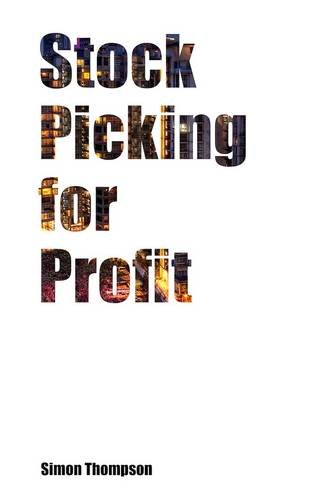
7. Stock Picking For Profit by Simon Thompson - Simon writes a regular column for the Investors Chronicle. He specialises in analysing small businesses and has proved an adept stock picker. Many of the concepts/methods he utilises have been mentioned in other books on this list, but this book is probably one of the best for providing real life case studies, demonstrating exactly what you should be looking for when analysing a potential investment.
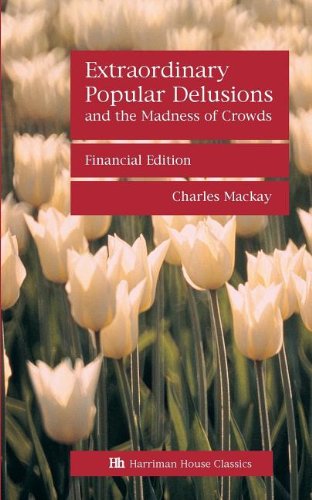
8. Extraordinary Popular Delusions And The Madness Of Crowds by Charles Mackay - Whilst not an investment title per-se, this book documents the limitations of human sensibility, and covers many interesting topics. Of note to investors should be the Dutch 'Tulip Mania', and also the South Sea Bubble. Yet there are many other interesting subjects mentioned, including the incidence of witch mania, alchemy, and the crusades.
9. The Snowball- Warren Buffett And The Business Of Life by Alice Schroeder - This is the biography of probably the world's best known investor, and while it doesn't dwell too much on his investing methodology, it does give fantastic insight into his psyche and habits. The book shows how his success owes as much to hard work, determination and self-discipline as it does to his method of investing.
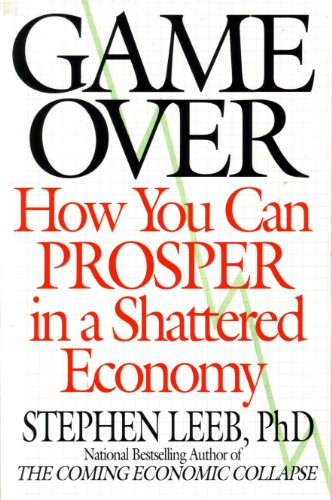
10. Game Over by Stephen Leeb - WARNING, this book has quite a negative outlook for the future, so if you are prone to depression you may want to avoid it. Nevertheless it is extremely interesting, and offers a glimpse at what pitfalls a rising global population could face as our natural resources are depleted. Stephen has made a few good investment calls in the past, being one of the first to jump on the gold bandwagon. Although I don't always agree with his Malthusian view of things, his book is well worth a read.
Wednesday, 7 May 2014
Ethical Investments
For the socially responsible investor, who wishes to save with a
conscience, there are a plethora of 'ethical' funds available. These vary dramatically from fund to fund, and research is recommended, as certain funds may
suit an individual’s ethical standards better than others.
It is worth noting that some stats have shown ethical funds
to under-perform the market; this could be due to the fact that they tend to
screen out sectors like tobacco, oil exploration, defence/arms & pharmaceuticals, which have strong revenue
streams and often pay substantial dividends.
This is not to say that ethical investing should be avoided, as
although returns may be sub par, it can still offer much better long term investment prospects than holding your savings in cash.
I have sifted through quite a few ethical funds, and below are some of the better performing examples that I came across.
F&C Stewardship Growth Fund - a long standing fund that aims to 'provide capital growth and income by investing in an ethically screened spread of UK equities.' The fund has gained 91.3% over the last 5 years which isn't too bad, but still 4.9% less than their benchmark (UK All Companies 96.2%).
A closer look at the fund offers some interesting insights. Amongst it's top 10 holdings are GlaxoSmithKline, who in the line of their business conduct testing on animals. Glaxo do try and 'prevent or minimise pain and distress before, during, and after experimental procedures.' but this still might not conform to the ideals that an ethical investor might aspire to.
Another holding in the fund is BG Group, the oil & gas exploration spin off of British Gas. Again some ethically minded investors may not be too keen on the idea of funding hydrocarbon extraction.
HSBC is the fund's largest holding, but as bankers seem to be an object of scorn for many, this could prove another bone of contention.
Another Ethical equity fund which has performed a bit better over the past 5 years is the Standard Life Investments UK Ethical Fund. It has risen a commendable 131.7%, soundly beating the UK All Companies benchmark (96.2%). There are no pharmaceutical companies to be seen in the top ten holdings and its largest holding is DS Smith who supply recycled packaging for consumer goods, a business which must surely tick a few boxes for most ethical investors! Another top ten holding is Asos, the on-line clothes retailer. There are however two banks present (Barclays & Standard Chartered), and BG Group also makes an appearance in this fund.
For investors with a lower attitude to risk the Royal London Ethical Bond Fund has performed admirably over the past five years, rising 72.3%, substantially more than the IMA Sterling Corporate Bond benchmark which has returned 58.1% over the same period. The fund's 5 biggest sector weightings are: structured products (21.3%), banks (15.8%), utility companies (13.8% - including some renewables e.g. First Hydro), social housing (9.1%) and insurance (8.9%).
As you can see, all the above funds have performed reasonably well, but ethical investment is not straight forward and each fund must be assessed on its own merits. If these are not to your taste there are many other options available (see trustnet table) that positively or negatively screen for many different ethical categories. For example the Virgin Money Climate Change fund aims to ''invest in businesses that are making the right decisions for the environment.'' ''Up to 25% of the fund is invested in what we call 'solution adopters' and 'solution providers'. Solution adopters are companies leading by example in their fields,
actively seeking out new ways to lower their environmental footprint.
Solution providers are companies developing and manufacturing solutions
to environmental problems, including alternative energy sources.'' Unfortunately the fund hasn't performed particularly well, rising only 69.2% over a five year period.
To sum up there are enough equity and bond funds out there to suit most ethical preferences and combinations of such could be used to match most risk profiles, as long as one isn't too fussy about returns.
To sum up there are enough equity and bond funds out there to suit most ethical preferences and combinations of such could be used to match most risk profiles, as long as one isn't too fussy about returns.
Tuesday, 6 May 2014
Portfolio Update May 2014 - M&A Activity Driving Gains
After a lacklustre Q1 there has been a recent surge in the market, which seemingly has been led by a few of my holdings that have benefited from positive M&A activity.
AstraZeneca shares have risen strongly (up around 24% in 2/3 weeks) on the back of takeover bids from the US company Pfizer, who are probably looking to take advantage of the UK's generous tax rates by headquartering their business on British soil. I may look at offloading some of these holdings if the share price is pushed much higher.
Also GlaxoSmithKline have hit the headlines because of a proposed deal with Swiss firm Novartis, in which they would swap assets with a view to streamlining both businesses. This has also been received favourably by the market with Glaxo shares rising around 7% in the last few weeks.
Lloyds Banking group are doing okay too, having risen around 10% over the same 2-3 week period on the back of news of offloading TSB branches.
As these 3 companies comprise a substantial part of my portfolio, things are boding well for a Q2 out-performance.
There has also been some positive news flow from Terrace Hill Group who are planning a reverse takeover of Urban&Civic holdings. Terrace hill shares are up almost 20% since the deal was announced.
Wednesday, 19 March 2014
Portfolio Update March 2014
Since my end of year post on January the 3rd, the markets have been fairly stagnant. The FTSE All-Share (my new benchmark index), has fallen about 1.1%. My portfolio is only down about 0.4% but this includes a couple of dividends received so I am probably broadly in line with the benchmark.
Most of my larger holdings have been resilient. Astrazeneca, GlaxoSmithKline, Imperial Tobacco and British American Tobacco have risen nicely, and Berkshire Hathaway has had a recent spike upwards, Lloyds Banking Group is treading water.
However there have been a few disappointments. Cairn Energy has taken a big hit due to a bout of unsuccessful drilling projects, and also a tax investigation by the Indian Government. I will hold these shares for the time being as I think the bad news is fully priced in, but they are top of my hit list should any better ideas come along.
Polo Resources, another natural resource play, have also been suffering in light of weak commodity prices. They remain priced at a huge discount to net asset value, yet are still growing their asset base. Their latest investment is a purchase of 12.8% of the Tunisian phosphate miner Celamin. Polo only constitutes a very small portion of my portfolio, and I will continue to hold for the time being in the hope of a re-rating to reflect the value of the underlying assets.
My holding in JPMorgan Russian Securities has taken a hammering (-20%) due to the political unrest in Crimea. I think this fund represents fantastic value at these prices, so last week I bought a little more. There is obviously now a substantial amount of political risk in this investment, but hopefully in the long run the issues will be resolved and the fund will re-rate. In the meantime I'll benefit from a generous yield of 3.6%.
I have also topped up on HSBC, who are also trading at a bargain basement price. Their forward PE is almost single digit and their forecast yield is 5.4%.
The decision to reduce my holdings in Tesco is looking like a good one. They have continued to struggle to hold their market share against discounters such as Lidl and Aldi, and are now in a nascent price war which will undoubtedly lower their net profit. That said, a lot of the bad news is priced in, and the shares are yielding almost 5% so I'll happily hold on to what I have remaining for the time being.
That's it for now. Happy investing all.
Thursday, 27 February 2014
FE Alpha Managers
It's a fairly well documented fact that most actively managed funds under perform their passive, index tracking rivals (and charge investors extra for the privilege).
However there are some managers out there who are well worth their proverbial salt, beating the market consistently over long time frames. Here are five such managers as demonstrated by the FE Alpha Managers list. Below are the current top five performers over a 10 year period, and the respective funds they manage.
1. Harry Nimmo - Standard Life UK Smaller Companies Trust PLC - 438.3%
2. Daniel Nickols - Old Mutual UK Smaller Companies PLC - 384.1%
3. Martin Lau - First State Greater China Growth - 337.5%
4. Nick Train - CF Lindsell Train UK Equity - 307.3%
5. David Dudding - Threadneedle European Select - 302.5%
source: www.trustnet.com
Some of these outstanding returns are no doubt attributable to the fact that these funds rate higher than average on the risk spectrum: you would expect smaller company, and emerging market funds to generally outperform the market as payment for taking on the extra risk. It is of little surprise that no income funds made the top five.
Nonetheless these managers have all significantly outperformed their benchmark indexes and deserve consideration as part of the risky portion of an adventurous portfolio. Whilst past performance is no certain guide to the future, there is a reasonable chance that shrewd managers who have made good investment decisions will continue to do so going forward.
For more information on index trackers v managed funds check out the following link.
Wednesday, 5 February 2014
10 Tips For Stock Market Success
- Buy quality businesses at reasonable prices: look for companies with an enduring competitive advantage, a strong revenue stream, and ideally a good record of dividend payment/growth. Familiarise yourself with valuation measures such as PE ratios, NAV etc and use these to determine whether the business is attractively priced. Resist the temptation to overpay.
- Learn to cut your losses and let your profits run: if the fundamentals of an investment have changed for the worse, then re-evaluate your position and possibly get out. Don't try and hold out until you have recouped your loss, you might be better off making your money back on a different (healthier) horse. On the flip side don't be too quick to bank your profits on good companies.
- Be tax efficient: make use of your ISA allowance, pension contributions, and other tax reducing investments. The majority of smaller DIY investors can avoid paying tax on their investments if they plan effectively.
- Use diversification wisely: diversification is a double edged sword. On one hand holding a large basket of shares does negate much of a portfolio's company specific risk, but on the flip side if you are not allocating enough capital to your best ideas, you're less likely to outperform the market (presuming your best ideas are any good).
- Size matters: in theory investors in smaller businesses should be rewarded with higher returns for taking extra risk, and Jim Slater's adage that 'Elephants don't gallop' would appear to have some merit. Yet I don't think it's as straight forward as this. Large boring companies are often undervalued by the market and can produce great returns, with less volatility than smaller companies. The FTSE100 has significantly outperformed the AIM index since it's inception. Large cap companies may not double in price overnight, but they make up for this by not going to the wall as frequently as their smaller brethren.
- Use tactical asset allocation: If the indexes of the world are heavily overbought, and trading on 20+ PE ratios, consider diversifying into other asset classes that may offer you higher returns, or at least protect your capital against a fall in the market. Conversely if stock prices are cheap on a historical basis, consider increasing your exposure to them.
- Keep a lid on costs/fees: minimise your costs as much as possible and try not to over trade. A saving of 0.5% a year on fees would make a huge difference to your investments over a lifetime of investing. For examples of the effects of lowering fees check this link.
- Invest for the long term & use cost price averaging: be patient, view your stock market investment as a get rich slowly scheme. Historically equities have outperformed cash 99% of the time over an 18 year period, but you may have to ride out some short/medium term volatility before gains are realised. Buying equities in tranches will help smooth out some of the short term market volatility.
- Be contrarian: the best value is usually found in equities that other investors fear to touch. Financial & House Builders' shares fell heavily out of favour during the credit crunch and in most cases investment into these sectors would have paid off handsomely. Conversely, if a particular share/sector is getting a lot of positive press and has already significantly rallied, you may do well to keep away from it.
- Read up: like most things in life there is a learning curve to investing, and because there is money involved it makes good sense to learn as much as you can before you commit your hard earned cash to the markets. I recommend reading the Investors Chronicle, Financial Times and Sunday Times Business & Money sections regularly to keep you up to date with matters.
Subscribe to:
Posts (Atom)

